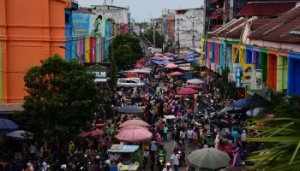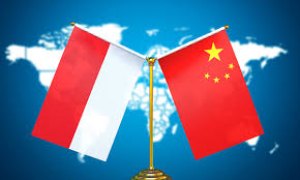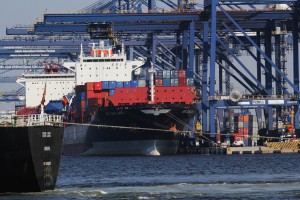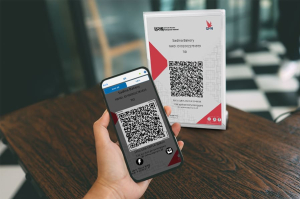AI, big data integration support mineral downstreaming, economic diplomacy: Binus
The integration of Artificial Intelligence (AI) and big data is considered an innovative geospatial system that can optimize natural resource management, while strengthening Indonesia's position in the global supply chain, a research by a team of Bina Nusantara University researchers reveals.
The research, titled "Analysis of Downstream Policy Big Data: Indonesia's Strategy and Diplomacy in Facing Global Dynamics, was conducted by Alexander Agung Santoso Gunawan, Edy Irwansyah, Fabian Surya Pramudya, Nurlina, Ahmad Sofian and Erni Herawati, says that AI technology is believed to have benefits in supporting economic diplomacy and mineral downstreaming strategies in Indonesia. The research dissemination was held in Jakarta on Monday, December 30, 2024.
Alexander A.S. Gunawan said that the use of modern technology, such as the Downstream Map (petahilirisasi.id) provides an in-depth view of strategic commodities such as nickel, bauxite, cobalt, and quartz sand.
"AI integration allows us to understand the distribution patterns and socio-economic impacts of mining activities in more detail. This technology not only supports sustainability, but also increases the efficiency of resource management processes," Alexander, who serves as Head of Data Science Program at Binus University, said.
The Downstream Map Platform, which is an AI-based geodashboard, will help the government and industry players identify mineral potential, map resource distribution, and predict market trends.
Accelerating decision-making process
With data processed for more than two decades, covering production records, import-export, and geospatial information since the early 2000s, this platform provides evidence-based insights that accelerate the decision-making process in the downstream sector.
In addition to displaying interactive maps and graphs, the Downstream Map is also equipped with machine learning-based market trend modeling that can project the potential added value of a commodity in the global market.
AI integration, such as this downstream map, can benefit the downstream diplomacy side of Indonesia. This kind of technology can help the government strengthen arguments in international negotiations because geospatial data facilitates Indonesia in domestic management and sustainability.
In addition, Indonesia can present verified distribution maps and supply estimates. This approach can also strengthen the government's negotiating position in setting export-import policies.
Opportunities and challenges
"According to Binus research, this data-based diplomacy approach has attracted the attention of other countries, including the Philippines and South Africa, which have begun to adopt similar steps. Indonesia is an example of how technology can strengthen economic strategies and national policies amidst global competition," Alexander said.
A number of studies have also highlighted similar trends in Indonesia, particularly in the financial and manufacturing sectors. However, research that specifically discusses the downstreaming of raw materials, diplomacy, and related legal frameworks is still very limited.
Through a multidisciplinary approach that integrates technology, law, and international business, Indonesia has succeeded in creating a downstream policy that is adaptive to global dynamics. Binus Research states that this success opens up opportunities for Indonesia to become a global manufacturing center, as well as a leader in technology-based resource management.
"With AI as a key driver, Indonesia's mineral downstreaming now has a stronger foundation to face global challenges, attract foreign investment, and create new jobs. However, the sustainability of this policy still depends on the synergy between technology, stakeholder collaboration, and compliance with environmental regulations," Alexander said.
He added, on the other hand, AI-based downstreaming also has challenges, including the processing of minerals such as nickel which requires environmentally friendly technology to minimize hazardous waste. Meanwhile, increasing mining exploitation is also said to need to be balanced with strict regulations and the use of sustainable technology.
"By combining AI and strong regulation, we can mitigate environmental risks while ensuring that mineral downstreaming supports inclusive national economic development," he concluded.
Already have an account? Sign In
-
Start reading
Freemium
-
Monthly Subscription
30% OFF$26.03
$37.19/MonthCancel anytime
This offer is open to all new subscribers!
Subscribe now -
Yearly Subscription
33% OFF$228.13
$340.5/YearCancel anytime
This offer is open to all new subscribers!
Subscribe now






